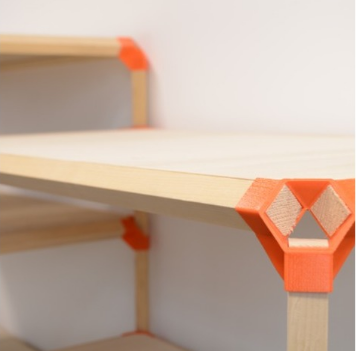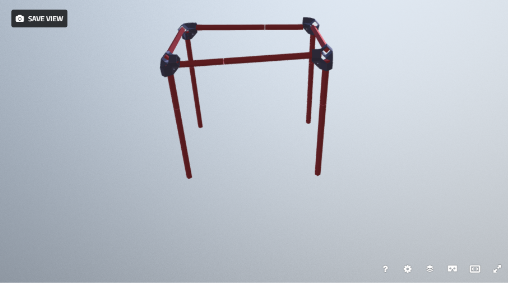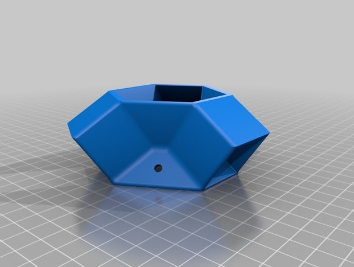Introduction
Furniture connectors are 3D printed items that allow the assemblage of wooden rods, to create pieces of furniture, most notably tables and shelves. By choosing rods of different lengths ones can altogether create tables or shelves of various sizes. Use 27x27cm wooden rods with the current 3D item. You can also use other types of rods but you will need to modify the 3D design to suit your needs.
Matériaux
Outils
3D printer
Étape 1 - Description of the object that we have prototyped
Different types of furniture connectors are available on this Thingiverse entry.
The most basic one, suitable to construct tables and shelves, is called JONCTION-P_Origin.stl
Below you can view a 3D reconstruction of a simple table built with the furniture connectors. You can also view this object in VR by navigating to this website on your smartphone
Étape 2 - For further discussion and work
According to the European Environmental Bureau, every year, the EU produces around 10 tonnes of furniture waste. Authorities are currently looking into the possibility of reusing this furniture waste to produce new items. Digital fabrication can also help with this issue, and in particular 3D printed furniture connectors are an ideal solution to enable reusing discarded furniture to create new ones. The added value of combining reuse practices and digital fabrication consists in allowing individuals to make their own tables, chairs, etc. without requiring specific machines or tools.
Similarly, it is possible to 3D print plastic bottle connectors to create all sorts of designs, including furniture. One of the most successful projects that tackles this topic is Trussfab.
Notes et références
A romanian translation of this publication is available here
This tutorial was produced as part of the FabEdu project, co-financed by the Erasmus + Programme of the European Union.
The content of this publication does not reflect the official opinion of the European Union. Responsibility for the information and views expressed therein lies entirely with the author(s).
Published



 Français
Français English
English Deutsch
Deutsch Español
Español Italiano
Italiano Português
Português